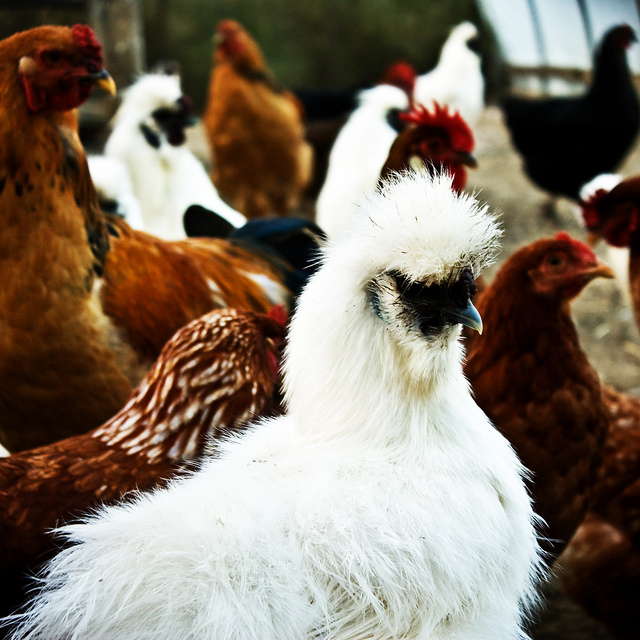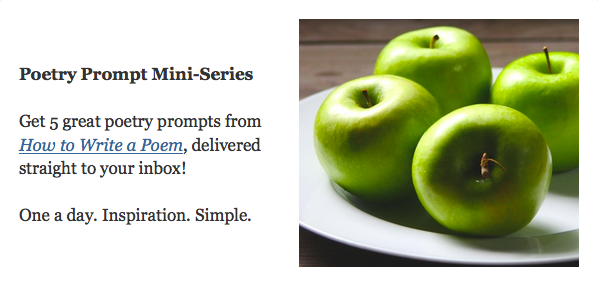So much of life depends upon the lighting. Under the fluorescent bulbs of Grade 9 English, I turned to page 646, or something like that, and discovered poetry. Unit VII probably had a catchy and alliterative title, but I don’t remember it.
I remember seeing bold-faced words, eerie line breaks (though I didn’t know the term, yet), and comprehension-questions which took up more space than the assigned reading. The prospect of answering more questions than could fit inside the rain-glazed interior of a red wheelbarrow made me want to dump this whole poetry thing in the manure pile as quickly as possible.
My apologies to the white chickens.
No, the industrial tube lighting of high school didn’t do much for poetry. I felt small and stupid. If I couldn’t osmose the new information overnight, then I was faced with a dry choice in the morning: either I was dumb or the new material was.
I preferred to blame those stupid chickens.
Thankfully, I had older friends who helped rescue poetry from the stench of unit exams. They lit candles and closed bedroom doors. They pulled out well-worn spiral bound notebooks, instead of textbooks, and the musty smell of the finite now took on the vanilla scent of the infinite.
Instead of answering to the red commands of “Analyze” and “Synthesize”, which publishers had printed as politely as possible in the margins, I now bathed in the reflecting pools of black ink which my friends had engineered around their poetry. Their artwork and mysterious hieroglyphs pointed me in the direction of something deeper. Roses and thorns. Unicorns and monsters. Jagged squares and weeping triangles.
It was like poetry in 3D, combining two dimensions of adolescent fear with one deliberate, fantastic smear.
Once I recognized the poetry underground, I longed to write. But I soon fell into confusion again. I had no idea what I was doing, let alone what I was saying.
I simply tossed in words because I liked their sounds. Sure, I wanted to make them skip, if I could, but even a sinking stone gave me a sense of power—because at least I could make a sound.
My sound. Take that, chickens.
Enough of the stones. I jumped into poetry like a cannonball. Each time I came out dripping, maybe laughing, but always knowing something in a way I didn’t before. Despite my often haphazard pentameter, I prized each underwater encounter.
But then life began to grow more confusing above water, too. During my senior year, while driving home on a November afternoon, my station wagon collided with a moving truck. I was airlifted to the hospital, where I spent the next week in a coma. Once I woke up, several weeks passed before I knew who I was or what had happened to me.
Even though doctors and therapists did their best to help me understand my massive internal head injury, a part of me still rejected the bold-faced word. My emotions were raw, out-stretched and flailing in a sea of questions.
That’s when poetry showed up, with two wooden handles, and volunteered the services of a red wheelbarrow.
Not long after I came home from the hospital, I sat down at my desk and wrote a poem. There, below a 60 watt bulb, I discovered something for the first time. Now I was wide awake and
glazed in rain
water
beside the white
chickens.
Again, my apologies to those white chickens. I love them now.
Photo by Hadleygrass. Creative Commons, via Flickr. Post by Matthew Kreider.
___________
Click to get FREE 5-Prompt Mini-Series
- Casting a Line for Surrealist Poetry - November 12, 2012
- The History of the World in Beer - October 22, 2012
- Journey into Poetry: Matthew Kreider - July 23, 2012


Megan Willome says
Matthew gets my vote for best Journey Into Poetry post! I love how his story weaves in and around this iconic poem (one which, frankly, has always baffled me). Now I will always think of Matthew Krieder instead of that poet dude with the three names.
Maureen Doallas says
You write beautifully of your journey, Matt. We’re grateful that it continues here.
Megan, I’m still slogging my way through Herbert Leibowitz’s biography of Wm Carlos Williams. Leibowitz has some unusual takes on Williams’s poems.
Matthew Kreider says
Megan. Your words. They’re mighty encouraging. Always have been. Thank you.
Maureen – I’m grateful, too. 🙂
Will Willingham says
The idea of skipping and sinking stones, either one does their thing. Beautiful stuff, Matthew.
L. L. Barkat says
This whole piece is so delightful (take that, chickens 🙂 )
And poignant too, seeing how you faced your finiteness fairly early on. I am thankful for the red wheelbarrow, so to speak, that delivered you to us, full of spirit.
Matthew Kreider says
Well, I’m also thankful for the pink wheelbarrow, so to speak, that welcomed me to the farm. 😉
L. L. Barkat says
ha 🙂
yup, we have all manner of transportation in pink. Why not a wheel barrow? 🙂
Matthew Kreider says
Maybe someday I will skip and sink boulders like you. You make it look graceful. 🙂
Lane Arnold says
Poetry, like rocks skipped across the surface of a summer lake, sends circles of change on the surface of our lives. Then, kerplunk, it sinks, leaving a trail of bubbling beauty, taking us to the deep of wonder. I wonder how many of us met poetry in a classroom or at a parent’s side? Whose voice invited you to poetry?
Matthew Kreider says
Great question for all of us to think about, Lane! Some might point to one person. Others might point to an entire choir — the baritones, tenors, sopranos …